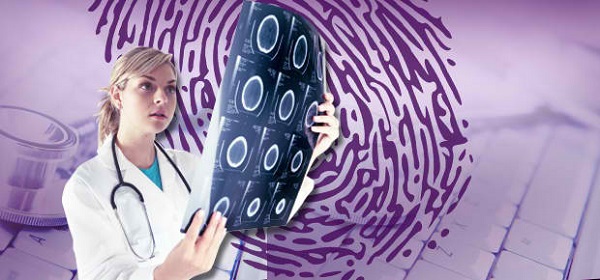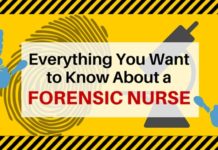Forensic nursing is one of the newest nursing subspecialties recognized by the American Nurses Association. It offers challenging investigative work that goes beyond the halls of hospitals and clinics. It has a promising job outlook that’s why more nurses are getting interested in entering this field.
Because forensic nursing involves using nursing skills in investigative work for legal proceedings, this subspecialty is recommended for those who are seeking a different perspective in practicing nursing.
What is Forensic Nursing?
According to the International Association of Forensic Nurses, forensic nursing is the “the practice of nursing globally when health and legal systems intersect”. Forensic nurses are providers of specialized care for patients, whether victims or perpetrators of trauma, in a certain case.
Forensic nursing differ from other nursing subspecialties as forensic nurses are trained to perform proper assessment, identification, evaluation and documentation that will meet the requirements of legal proceedings. They have the expertise needed to collect evidences, provide medical testimony in the court and participate in legal cases.
Is Forensic Nursing Important?
Forensic nurses are trained to assess, observe, collect and document important information that will serve as part of legal basis in investigating traumatic injuries.
As they ensure the health and emotional well-being of victims, they gather and document evidences at the same time. This is needed so a testimony that will be helpful in finalizing a case can be secured to the court of law.
Forensic nurses participate in anti-violence efforts as provision of nursing care is focused on victims of intentional injury like sexual assault, child abuse, domestic violence and elder mistreatment. This profession has been essential in the management of a medical legal case.
What Are The Roles of a Forensic Nurse?
Here are the basic roles of a forensic nurse:
Visit the scene
A forensic nurse takes time to visit the scene where the case being investigated happened. Information about the scene should be collected beforehand so the forensic nurse will know what to look for.
Identify forensic evidence
The forensic nurse has the expertise to identify forensic evidences within the scene. These evidences should be closely related to the case and properly documented.
Document injuries through forensic photography
When taking care of the victims or perpetrators of a certain case, the forensic nurse should document injuries through forensic photography. The forensic nurse has the knowledge and skills needed to identify injuries that will serve as essential evidences in a legal proceeding.
Investigate suspicious or unidentified behavior and injury
After documenting identified injuries for a legal case, the forensic nurse can further evaluate and investigate suspicious or unidentified behavior and injury. Additional evidences to the case often serve as important keys in solving a case.
How to Become a Forensic Nurse
If you like to become a forensic nurse, here’s a step-by-step guide on how you can be one:
Step 1: Complete your Bachelor’s Degree in Nursing.
A Bachelor’s Degree in Nursing is commonly required when entering advanced careers in nursing. This is also your first stepping stone in becoming a forensic nurse.
Step 2: Pass the NCLEX-RN and the required RN certifications in your state.
Practicing forensic nursing requires an RN license so you should pass the NCLEX-RN as well as the other required RN certifications in your state. You must be fully licensed to practice nursing before you can enter other subspecialties in nursing like forensic nursing.
Step 3: Acquire forensic nurse education and training.
A Sexual Assault Nurse Examiner or SANE and a Death Investigator are two popular careers in forensic nursing.
To become a SANE, a registered nurse must complete the Sexual Assault Examiner Class which is composed of 40 hours of classroom training and 40 hours of clinical training. This education program is recognized by the International Association of Forensic Nurses. You can also secure certification for this study although it is not required in most states.
In some states, registered nurses are allowed to serve as Coroners or Death Investigators. A certificate for Forensic Death Investigation can be obtained for this purpose which is commonly composed of 15-credit certification programs.
Step 4: Getting continuing program for forensic nursing
Getting a Master’s degree or PhD in forensic nursing is advised if you want to pursue a career in legal nurse consulting. This pathway is not popular among forensic nurses but great to consider if you want to specialize in this field for a higher position.
Where Do Forensic Nurses Work?
Forensic nurses have varied job opportunities that may include the following:
Emergency Rooms
Hospitals usually employ forensic nurses to work in their emergency rooms . It is important that a victim of abuse or neglect is seen by a forensic nurse when seeking treatment at emergency rooms. The forensic nurse will conduct interview and document evidences for the case.
Police Departments
In some cases, forensic nurses are sought to work with victims of abuse and negligence in police departments. They have the expertise to care for these victims while collection of evidences is being pursued.
Law Firms
Some law firms employ forensic nurses for the review of medical records and reports so they can provide support in preparing for a legal case. Forensic nurses ensure that the evidences gathered and documented are correct and supported in the medical point of view.
Private Practice
Some forensic nurses with plenty of experience choose to start their own private office. Law firms seek the service of forensic nurses in private practices so they can prepare defending for a medical case.
Job Outlook for Forensic Nursing
The 2010 U.S. Bureau of Labor Statistics (BLS) combined forensic nursing with other subspecialties of nursing in predicting job outlook for the next years. It is expected that this profession has a growth rate of 26% between 2010 and 2020. Additional 711, 900 jobs are expected to be created for this profession in the next years, making it one of the most promising careers to seek for.
Average Salary of a Forensic Nurse
The 2010 BLS report indicate that the median salary for nurses was $64,690 annually. The top ten percent of this job earn an average of $95,130 annually while the lowest ten percent earn an average of $64,690 annually. There are more variations in salary when considering other factors like the area where the forensic nurse is employed and the total years experience in this profession.
About the Author: Je Abarra is a nurse by profession and a freelance writer by passion. She is working as a staff nurse in the pediatric ward of a private city hospital for more than two years. During her free time, she usually writes about her fascinations in health and nursing. She loves to provide tips and fun facts about nursing and healthy living.














